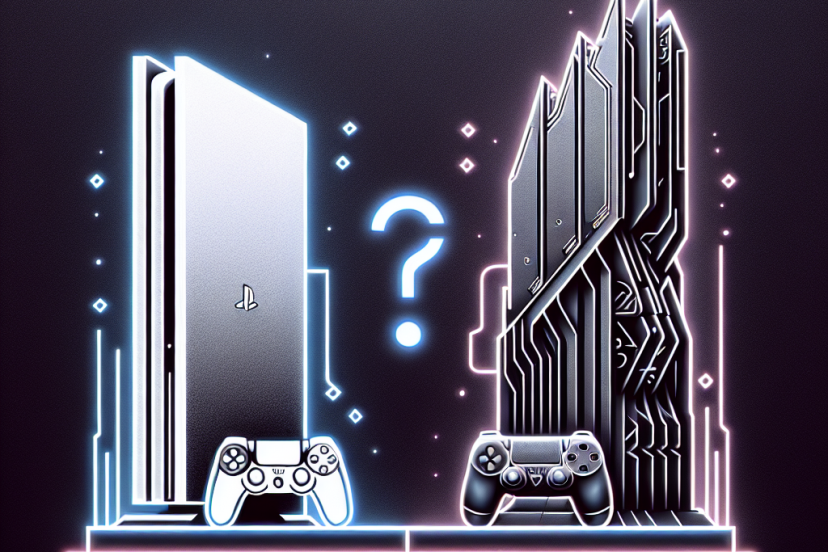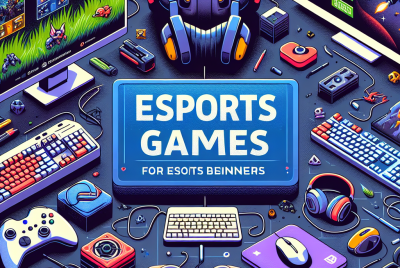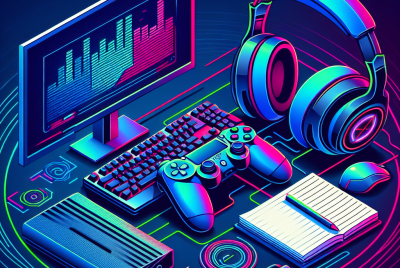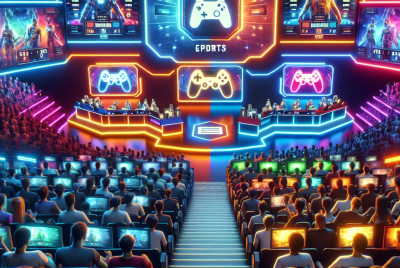Ultimate Guide to FPS Games for Competitive Play
The Ultimate Guide to FPS Games for Competitive Play
Understanding the Genre
First-person shooter (FPS) games have carved out a significant space in competitive gaming. In these games, players view the action through the eyes of the protagonist, enhancing immersion and enabling precise aiming and movement. The genre features a combination of strategy, skill, and reflexes, making it highly competitive.
Popular FPS Games
There are several leading FPS titles that dominate the competitive scene. Key titles include:
-
Counter-Strike: Global Offensive (CS: GO)
- Known for its tactical gameplay and heavy emphasis on teamwork, CS: GO remains a staple in professional esports. Players engage in rounds, with one team trying to complete objectives while the other defends.
-
Call of Duty Series
- Known for its fast-paced gameplay, the Call of Duty series offers multiple game modes, from traditional deathmatches to battle royale. Each installment features unique mechanics that keep the competition fresh.
-
Valorant
- Gaining popularity rapidly, Valorant combines elements from CS:GO and Overwatch, introducing character abilities that add depth to tactical gameplay.
-
Battlefield Series
- Emphasizing large-scale warfare, the Battlefield games include vehicular combat and vast maps, creating dynamic and chaotic gameplay.
-
Rainbow Six Siege
- Focused on tactical gameplay and destruction, Rainbow Six Siege offers a unique approach with operator characters, introducing specific gadgets and roles.
Key Elements of Competitive FPS
Mechanics
Understanding the core mechanics of FPS games is essential for competitive play. Key mechanics include:
-
Aiming and Accuracy: Mastering aiming is critical. Players should practice using different weapons to understand recoil patterns and bullet drop.
-
Movement: Optimal movement can evade enemy fire. Techniques such as strafing, crouching, and bunny hopping can increase survivability.
-
Map Knowledge: Familiarizing yourself with the maps is fundamental. Knowledge about choke points, sniper spots, and common pathways gives a strategic advantage.
-
Communication: In team-based games, effective communication is vital. Using voice chat or in-game signals can help coordinate complex strategies.
Game Modes
Understanding the various game modes available in FPS games can enhance strategic development:
-
Deathmatch: A free-for-all format where players compete to get the most kills within a set timeframe.
-
Team Deathmatch: Two teams battle to reach a kill limit, promoting teamwork and collaborative strategies.
-
Objective-Based Modes: Modes such as bomb defusal or hostage rescue require teams to complete specific objectives, offering layers of complexity.
-
Battle Royale: Popularized by games like Fortnite and Apex Legends, battle royale formats feature last-man-standing gameplay on a shrinking battlefield.
Competitive Strategies
Team Composition
The team composition often dictates the outcome of matches. Balancing different roles—like attackers, defenders, and support—can optimize team performance. Each player should select a character or class that complements the overall strategy.
Adaptability
Flexibility during matches is crucial. Players should adapt their strategies based on opponents’ tactics and game dynamics. Implementing counterstrats can turn the tide in challenging situations.
Economy Management
In games like CS:GO, managing the in-game economy is key to success. Players should decide when to buy weapons, armor, or abilities based on team funds and future rounds.
Training Techniques
Aim Training
Utilizing aim training software like Aim Lab or Kovaak’s FPS Aim Trainer can significantly enhance accuracy. Players can practice individual aspects of aiming, such as tracking, flick shots, and precision shooting.
Game Practice
Regularly playing ranked matches helps players understand the game’s mechanics in a competitive environment. This allows players to gauge their skills against other seasoned players.
Watching and Analyzing
Studying professional players through streams and tournament matches can offer unique insights into positioning, strategies, and decision-making processes.
Equipment and Setup
Having the right gear can influence performance:
-
Mouse and Mousepad: A high DPI mouse allows for precision, while a larger mousepad accommodates wider movements necessary for flicking.
-
Keyboard: Mechanical keyboards often provide better feedback, helping in fast-paced environments where reaction time is critical.
-
Headset: A good headset enhances audio cues crucial for detecting enemy movements, making it easier to react appropriately.
-
Monitor: Investing in a monitor with a high refresh rate (144Hz or higher) can make a significant difference in gameplay, providing a smoother visual experience.
Community and Resources
Engaging with the community is a valuable resource for improvement. Online forums and platforms like Reddit or gaming Discord servers allow players to share tips and strategies.
Participating in local tournaments or online leagues can also provide practical experience while fostering competition. Sites like ESL and Faceit offer competitive environments where players can test their skills.
Staying Updated
FPS games are continuously evolving, with developers regularly releasing patches and updates that alter balance and mechanics. Keeping up-to-date with patch notes and community discussions ensures players remain competitive.
Mental and Physical Health
Maintaining mental focus and physical well-being is pivotal for sustained performance:
-
Breaks and Downtime: Players should take regular breaks during extensive gaming sessions to avoid burnout and maintain optimal performance.
-
Physical Fitness: Engaging in physical activity or exercise can improve focus, stamina, and overall mood, contributing positively to gaming performance.
-
Mindfulness: Practicing mindfulness and stress management techniques can help maintain composure under pressure during competitive matches.
Joining Tournaments
Engaging in tournaments can be intimidating but offers invaluable experience. Start by entering smaller, local competitions before scaling up to more significant events. Websites that host tournaments, like Toornament and Challonge, offer excellent platforms to find events suited to your skill level.
Engage with the competitive community through social media platforms or forums to stay informed about upcoming events, practice sessions, or team formations.
Future of Competitive FPS
The future of FPS games looks promising, with innovations in technology and game design continually reshaping the landscape. Developers are experimenting with new mechanics and better matchmaking systems to enhance the competitive experience.
The rise of VR in gaming also presents exciting opportunities for immersive FPS gameplay, although its acceptance in competitive play remains to be seen.
FPS games continue to evolve, and both players and developers must adapt to keep gameplay fresh, competitive, and engaging. Keeping a finger on the pulse of trends will ensure that players remain at the forefront of this dynamic gaming genre.




